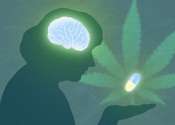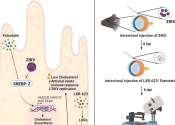A neurological disorder is a disorder of the body's nervous system. Structural, biochemical or electrical abnormalities in the brain, spinal cord or other nerves can result in a range of symptoms. Examples of symptoms include paralysis, muscle weakness, poor coordination, loss of sensation, seizures, confusion, pain and altered levels of consciousness.There are many recognized neurological disorders, some relatively common, but many rare. They may be assessed by neurological examination, and studied and treated within the specialities of neurology and clinical neuropsychology.
Interventions for neurological disorders include preventative measures, lifestyle changes, physiotherapy or other therapy, neurorehabilitation, pain management, medication, or operations performed by neurosurgeons. The World Health Organization estimated in 2006 that neurological disorders and their sequelae (direct consequences) affect as many as one billion people worldwide, and identified health inequalities and social stigma/discrimination as major factors contributing to the associated disability and suffering.









